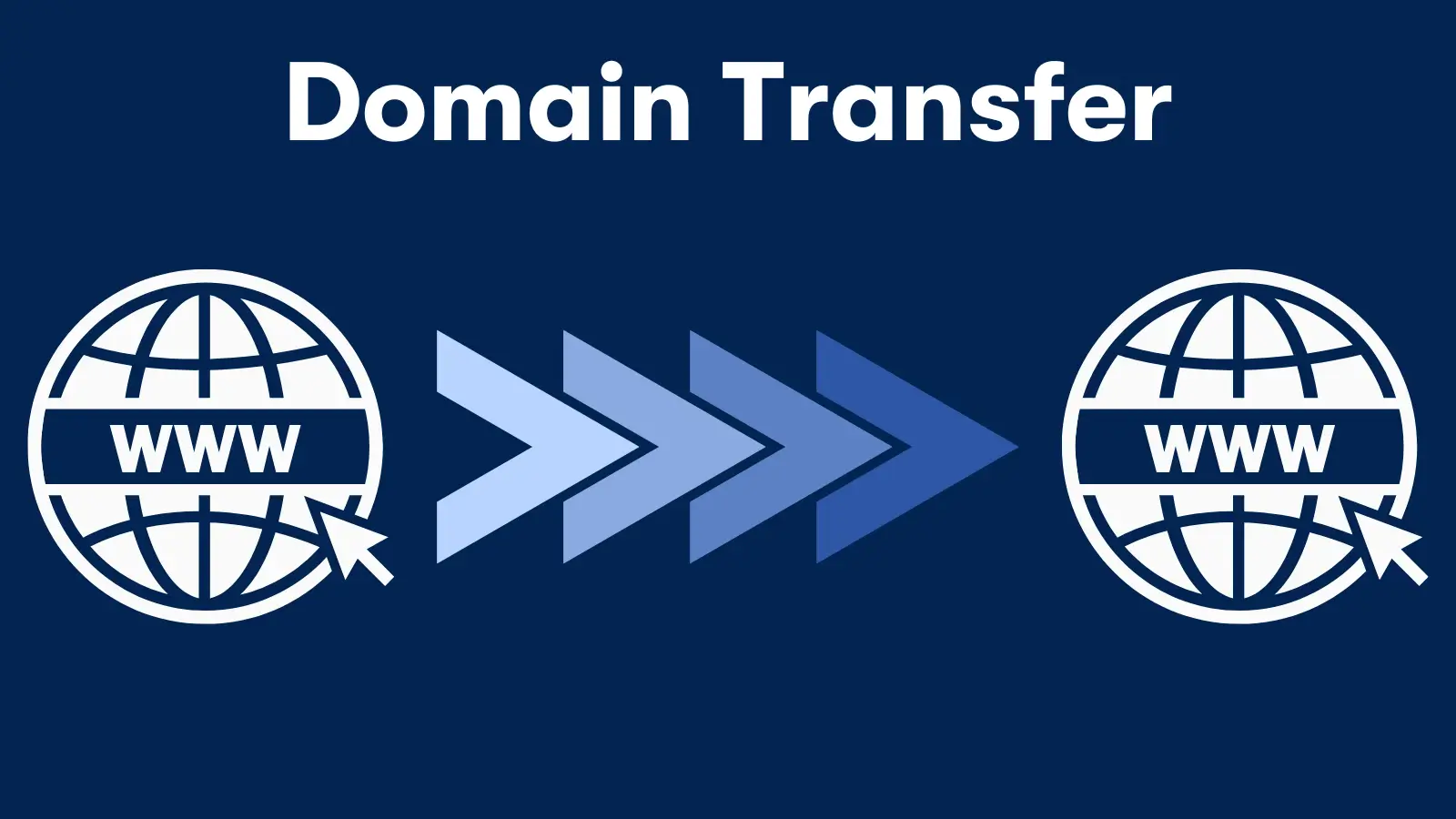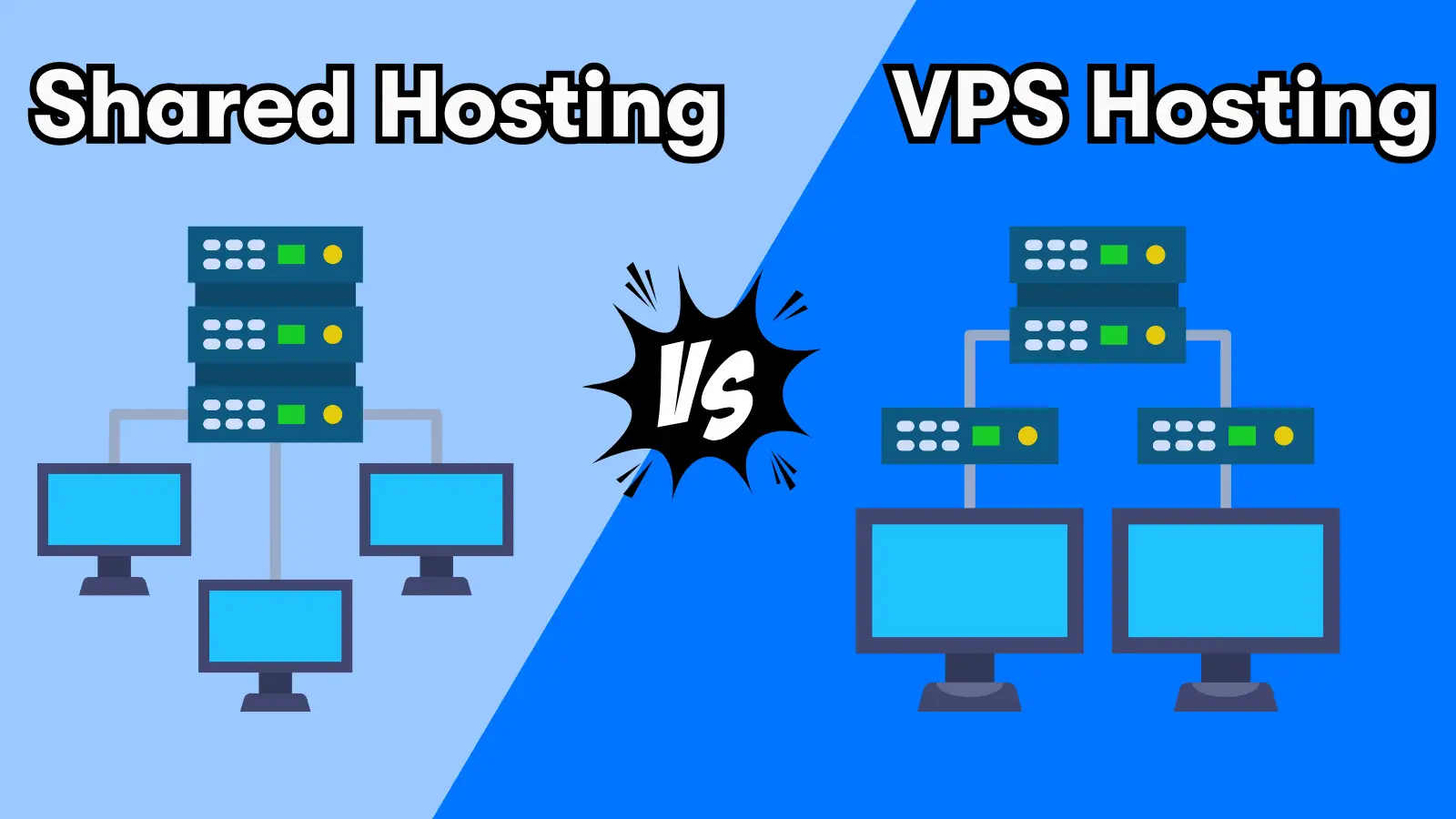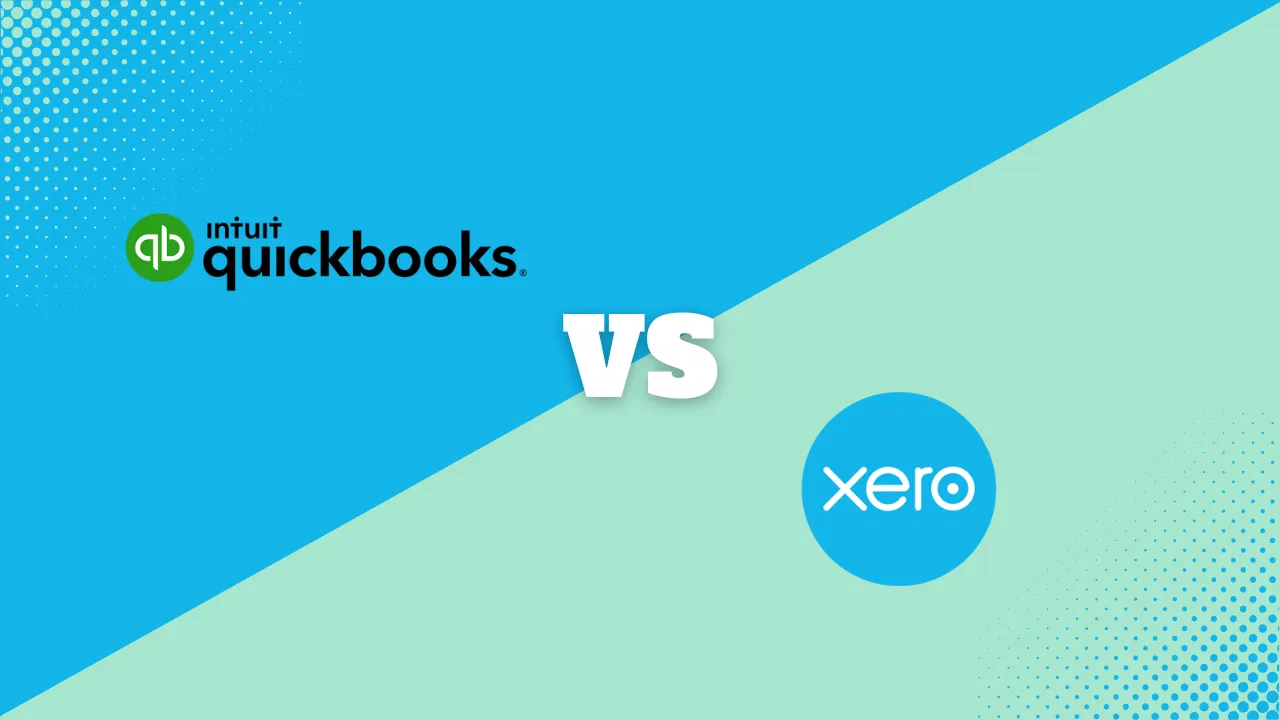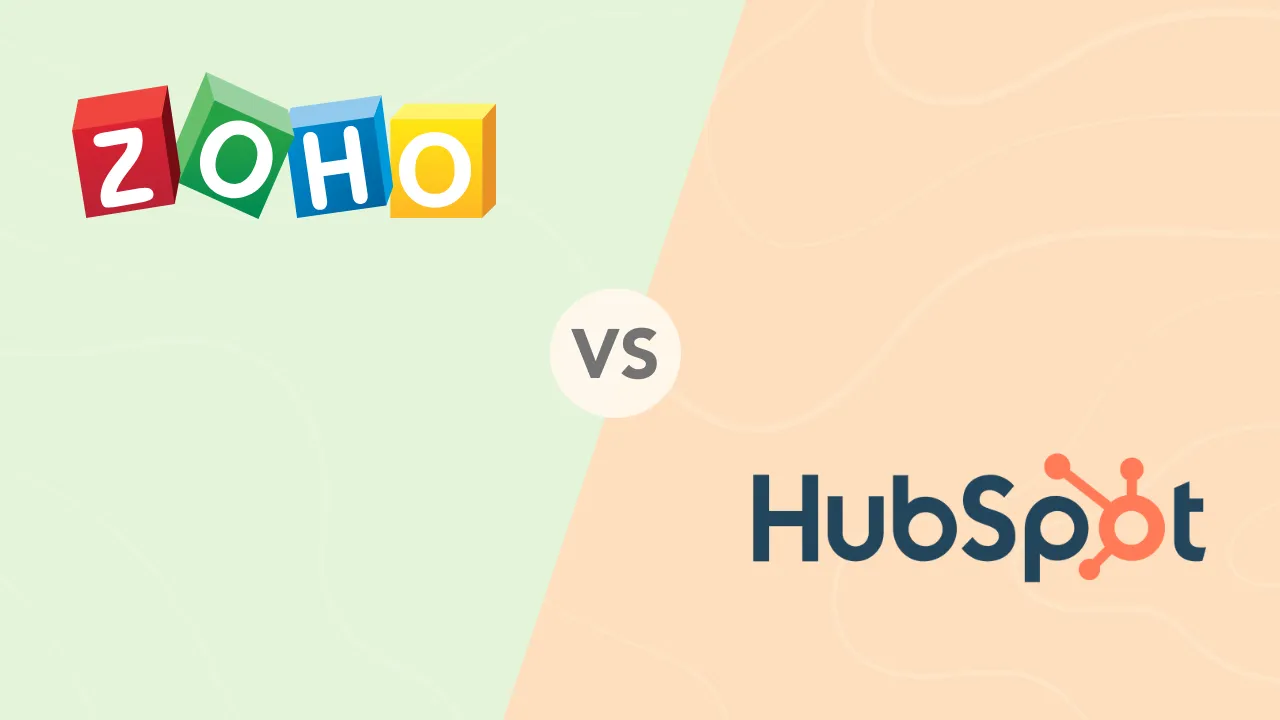What Is SSL, and Why Do You Need It for Your Website?
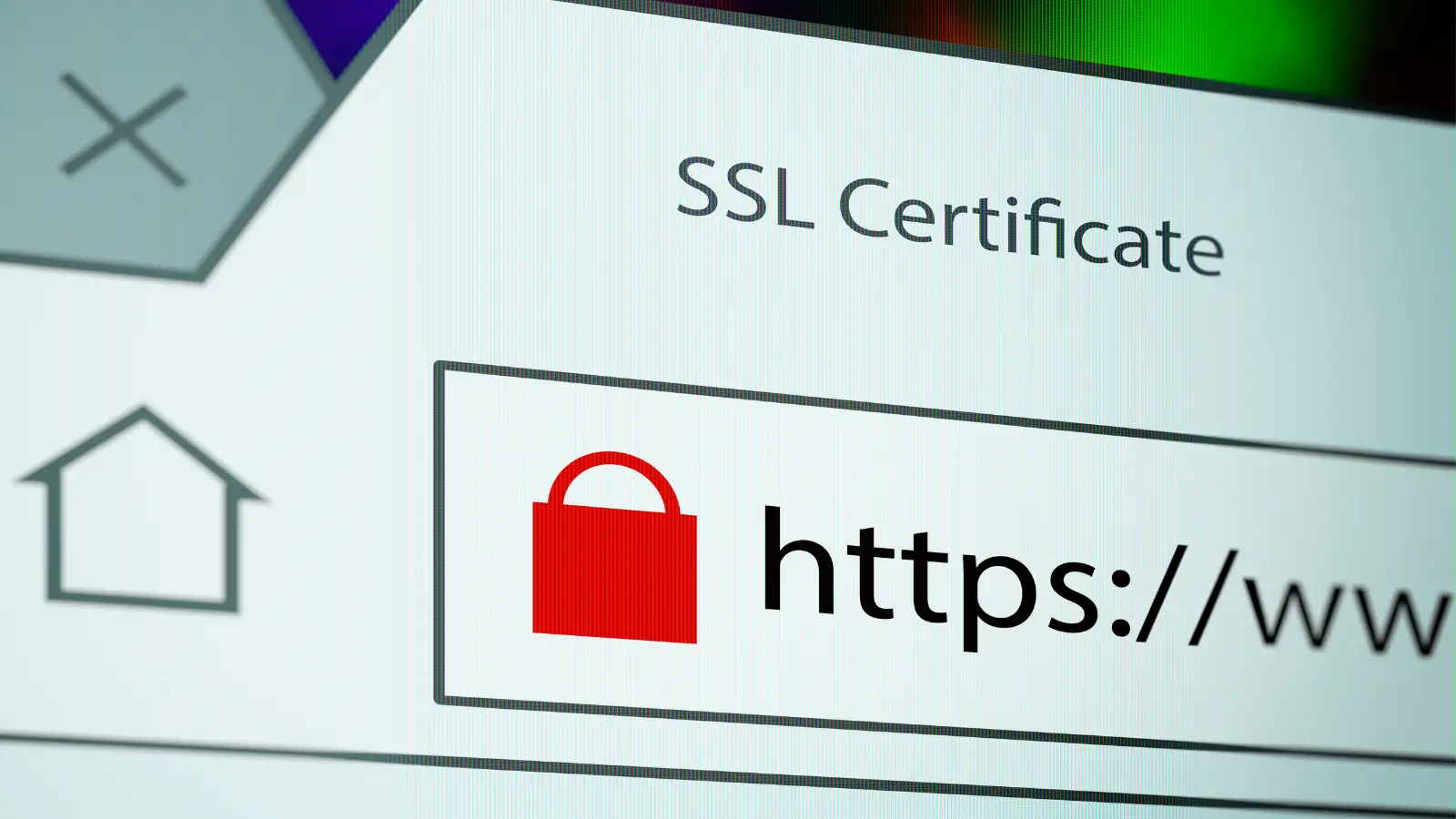
Securing data and protecting user information is critical for any online presence. Secure Sockets Layer (SSL) is a technology that safeguards data exchanged between a website and its visitors. It creates a secure, encrypted link between a server and a browser, ensuring that sensitive information, such as payment details and passwords, remains private. SSL is essential for building trust, improving website credibility, and complying with security standards. Here’s a complete guide on SSL, how it works, and why every website needs it.
What is SSL?
SSL, or Secure Sockets Layer, is a protocol that encrypts the communication between a website’s server and a visitor’s browser. This encryption is crucial for securing data, particularly when a website collects sensitive information such as credit card numbers, login credentials, or personal information.
How SSL Works
SSL operates using encryption, authentication, and integrity checks. Here’s a more detailed look at each aspect:
-
Encryption: SSL uses a process called encryption to convert data into an unreadable format. This ensures that sensitive information, like credit card details or login credentials, is hidden from third parties. Encryption is a two-way street: data leaving a user’s device is encrypted and decrypted by the server, and vice versa. Only the user’s browser and the server can decode the data, creating a secure “tunnel” for data exchange.
-
Authentication: SSL certificates verify the website’s identity, allowing users to know they’re connecting to the intended, verified site. During the SSL handshake, the browser checks the SSL certificate details to confirm that it’s valid and trustworthy. This prevents “man-in-the-middle” attacks, where a malicious actor might impersonate a website to intercept data.
-
Data Integrity: SSL also ensures data integrity by verifying that data is not tampered with during transit. When a message reaches its destination, SSL verifies it hasn’t been altered by adding a cryptographic hash to the data packet. This ensures data consistency and trustworthiness, which is essential for any sensitive transaction.
When SSL is active, users can see “HTTPS” at the beginning of a URL, indicating a secure connection.
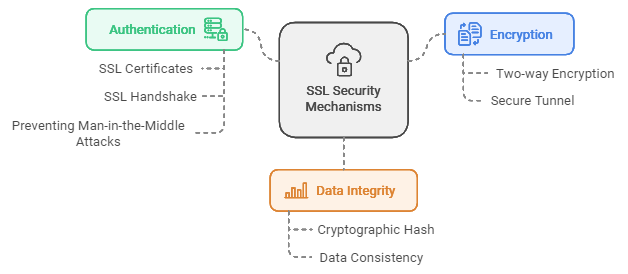
Why SSL is Essential for Your Website
SSL offers several key benefits beyond basic encryption. Let’s explore why SSL is fundamental for any website:
-
Data Security
SSL’s primary function is to protect data during transmission. This is particularly important for sites handling sensitive information, such as eCommerce sites, financial institutions, and membership platforms where users input passwords or payment details. SSL’s encryption prevents unauthorized access to data, ensuring it can’t be intercepted or misused. -
Trust and Credibility
SSL certificates signal trust to users by displaying visual indicators: a padlock icon in the address bar and an “HTTPS” URL. These indicators assure users that their data is secure, encouraging them to interact more confidently with the website. For sites without SSL, browsers may flag them as “Not Secure,” which can discourage visitors and damage a site’s credibility. -
SEO Benefits
Search engines, particularly Google, consider SSL a ranking factor. Sites with SSL certificates tend to rank higher than non-secure sites. This ranking boost means that SSL not only improves security but also helps improve your website’s visibility in search results, potentially driving more organic traffic. -
Compliance for eCommerce and Payments
SSL is necessary for websites that handle payments to comply with PCI-DSS (Payment Card Industry Data Security Standard) regulations. This security standard mandates that all eCommerce websites with credit card transactions use SSL to secure payment data. Failing to comply can result in fines or other legal complications.
Types of SSL Certificates
Choosing the right SSL certificate depends on the purpose of your website, the level of security required, and the trust you want to build with users. Here are the primary types of SSL certificates available, along with some additional options to fit different use cases:
1. Domain Validation (DV)
- Description: DV certificates offer basic encryption and validate only the domain ownership, meaning that the certificate authority (CA) verifies the person or organization owning the domain.
- Verification Process: Typically a quick process, DV SSL certificates require the applicant to confirm ownership of the domain via email or DNS records.
- Best For: Small websites, blogs, and personal sites that don’t process sensitive data like payments.
- Security Level: Provides essential encryption but lacks in-depth validation of the organization.
2. Organization Validation (OV)
- Description: OV certificates offer a higher level of trust and encryption than DV certificates by verifying both the domain ownership and the organization’s identity.
- Verification Process: Requires more detailed verification, including proof of the organization’s legal existence (e.g., business registration documents). This process typically takes a few days.
- Best For: Businesses, companies, and organizations handling customer information or transactions but not requiring the highest validation level.
- Security Level: Adds credibility by verifying the organization, displayed in certificate details accessible to visitors.
3. Extended Validation (EV)
- Description: EV certificates provide the highest level of validation and trust, displaying the organization’s name directly in the browser address bar, offering maximum visibility for security.
- Verification Process: Rigorous, requiring extensive checks of the organization’s identity and legitimacy, including legal documents, to confirm ownership and operation.
- Best For: Financial institutions, eCommerce websites, and large enterprises that handle sensitive transactions or high-value data.
- Security Level: Offers the highest level of security and assurance for users, with visual confirmation of site legitimacy.
4. Wildcard SSL Certificates
- Description: Wildcard certificates secure a domain and all of its subdomains with a single certificate, allowing flexibility in protecting multiple subdomains under the primary domain (e.g., securing both “example.com” and “blog.example.com”).
- Verification Process: Can be issued at the DV or OV level, depending on the organization’s needs.
- Best For: Businesses with multiple subdomains under one main domain, such as blogs, storefronts, and support sites.
- Security Level: Provides security across subdomains, simplifying management without needing separate certificates for each subdomain.
Related Articles
5. Multi-Domain SSL Certificates (SAN Certificates)
- Description: Also known as Subject Alternative Name (SAN) certificates, these allow multiple domains and subdomains to be secured with a single certificate.
- Verification Process: Available at the DV, OV, and EV levels, depending on the required security and validation level.
- Best For: Organizations with multiple websites or brands under different domains (e.g., example.com, example.net).
- Security Level: Offers flexible protection across various domains and subdomains, reducing the need for multiple certificates.
6. Unified Communications Certificates (UCC)
- Description: Initially designed for Microsoft Exchange and Office Communications Server, UCC certificates can secure multiple domain names within a single SSL certificate.
- Verification Process: UCCs are generally available as OV certificates, requiring proof of organization and ownership.
- Best For: Businesses using multiple domains within Microsoft Exchange or similar platforms.
- Security Level: Provides high security for integrated communication environments, useful for internal corporate infrastructure.
Choosing the Right SSL Certificate for Your Business
Selecting an SSL certificate depends on your website’s structure, business size, and security needs:
- Single Domain: If your website only needs protection for a single domain, a DV, OV, or EV SSL certificate will suit your needs based on the security level required.
- Multiple Subdomains: For websites with multiple subdomains, a Wildcard SSL will simplify management and provide consistent security.
- Multiple Domains: For organizations managing several domains, a Multi-Domain SSL (SAN) certificate offers cost-effective, secure management.
- High-Security Needs: Enterprises or financial sites that handle sensitive transactions should consider Extended Validation (EV) SSL for maximum user trust and credibility.
How do SSL Certificates Work?
SSL certificates operate through a process known as the SSL handshake, which establishes a secure connection between the browser and server. Here’s a breakdown:
-
SSL Handshake: When a user visits a site with SSL, their browser and the website’s server initiate a handshake. This process confirms the SSL certificate’s validity.
-
Key Exchange: During the handshake, the server sends the browser a copy of its SSL certificate. The browser verifies it, and a shared encryption key is generated to secure data transfer.
-
Secure Data Transmission: Once the handshake completes, the browser and server use the encryption key to securely transmit data. This ensures that even if someone intercepts the data, they cannot decrypt it without the key.
Can an SSL Certificate Be Used on Multiple Servers?
The usability of an SSL certificate on multiple servers depends on the certificate type:
-
Single-Server SSL Certificates: Standard SSL certificates are generally issued for a single server. They’re ideal for websites hosted on one server but may require additional licenses for use across multiple servers.
-
Wildcard SSL Certificates: Wildcard SSL certificates cover a domain and all of its subdomains (e.g., example.com, blog.example.com), which can be used across multiple servers. This is beneficial for businesses managing multiple subdomains under the same main domain.
-
Multi-Domain SSL Certificates (SAN): Multi-domain, or SAN (Subject Alternative Name) certificates secure multiple domains under a single certificate. They are a flexible solution for businesses with multiple websites across different servers.
For security and compatibility, consult your SSL provider to determine if your SSL type supports multiple servers.
What Happens When an SSL Certificate Expires?
When an SSL certificate expires, the site loses its secure connection, and browsers display a “Not Secure” warning. This alert can deter visitors, damage credibility, and impact SEO.
To avoid expiration issues:
- Set a Reminder: Many SSL providers send reminders close to the expiration date, allowing website owners to renew the certificate on time.
- Automated Renewals: Some providers offer automated renewals, ensuring that the SSL certificate remains active without manual intervention.
- Consider Multi-Year SSL: Some SSL providers offer multi-year certificates, reducing the need for frequent renewals.
Allowing an SSL to expire disrupts data security and visitor trust, so timely renewal is essential.
How to Know if a Site Has an SSL Certificate
Identifying a site with SSL is simple and can be done through visual indicators:
-
Padlock Icon: A padlock icon appears next to the URL in the browser bar, indicating that the website is secure and has an active SSL certificate.
-
HTTPS Prefix: Sites with SSL use “HTTPS” (Hypertext Transfer Protocol Secure) instead of “HTTP.” This prefix is visible at the beginning of the URL and indicates an encrypted connection.
-
Certificate Details: For more details, click the padlock icon to view the SSL certificate information, such as the issuer, the type of SSL, and its expiration date. This transparency allows users to verify the site’s security credentials.
Conclusion
SSL certificate is essential for securing data, building visitor trust, and improving your site’s SEO. SSL encrypts the information shared between your site and its users, reducing data theft risks. Websites that use SSL also benefit from a “secure” label (HTTPS and a padlock icon), which reassures visitors and enhances your credibility. To find the right SSL certificate, consider the size of your website, the level of security you need, and the type of data you handle. From basic Domain Validation (DV) for small sites to Extended Validation (EV) for enterprises, SSL certificates come in various levels to fit different needs. Investing in SSL strengthens your site’s security and helps ensure a professional, trustworthy online presence.
FAQ
Can a website run without SSL?
Yes, a website can run without SSL, but it won’t have encrypted connections, which can expose user data and display “Not Secure” warnings in browsers, impacting trust and SEO.
Is SSL for domain or hosting?
SSL certificates are linked to the domain, not hosting. They secure the data transmitted between the domain’s server and users’ browsers.
What happens if you don’t use SSL?
Without SSL, data sent between users and your site isn’t encrypted, increasing vulnerability to data theft and reducing user trust. Browsers may also label your site as “Not Secure.”
How much does an SSL certificate cost?
SSL costs vary. Basic SSL can be free, while more advanced certificates, like EV SSL, can range from $10 to $200+ per year, depending on the provider.
When should you use SSL?
SSL should be used on any website that handles sensitive data (e.g., login details, payments). It’s also beneficial for SEO and building trust, so ideally, all websites should have SSL.
Do I have to pay for SSL?
Not always. Many providers offer free SSL certificates, but paid options provide additional features and higher levels of validation.
Is SSL 100% Secure?
No security is 100% foolproof, but SSL greatly reduces the risk of data interception. It significantly enhances security, making data far more difficult for attackers to access.
